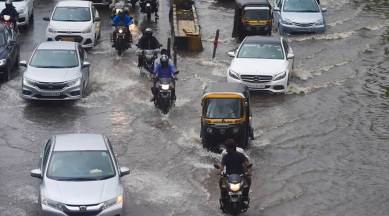Parts of South Gujarat received heavy rainfall on Thursday, with Vaghai taluka of Tapi district receiving the highest rainfall of 6 inches. As creeks and rivers overflowed, the water level at Ukai dam in Tapi district rose to 278.79 feet as 11,488 cusecs of rainwater flowed into the reservoir.
Meanwhile, Mumbai registered its first dengue death this year with 32-year-old Mulund resident on July 20. Health officials are seeing a surge in the viral infection, transmitted by Aedes Aegypti mosquito. The mosquito-borne infection has successively risen in the last few years in Mumbai.
During heavy rainfall, water continuously accumulates and gets washed away, thus sweeping away any mosquito larvae. In Mumbai, however, the last fortnight has seen a dry spell, forcing rainwater to remain stagnant. This kind of weather is best suited for mosquitoes to breed and multiply. “The mosquito’s life cycle is 7-8 days, to grow from larvae to adult stage. With the dry spell, the water is not washed away and remains stagnant allowing the larvae to develop into an adult mosquito,” said Dr Padmaja Keskar, executive health officer in Brihanmumbai Municipal Corporation (BMC).
